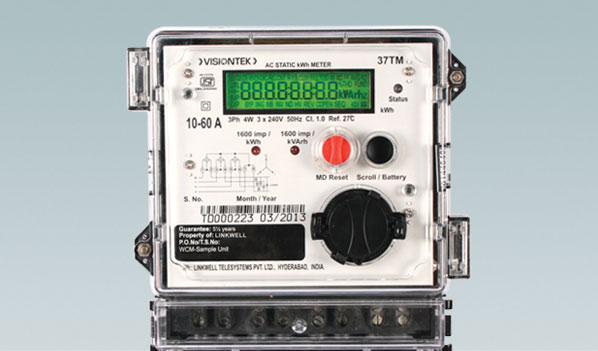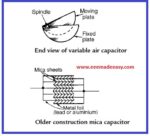TOD Meter full form is Time of Day meter. TOD Meter records the demand, time, and energy usage of electricity by splitting rates in to multiple segments including on-peak, off-peak, and critical peak.
What is TOD Meter or Time of Day Meter ?
Time Of Day (TOD) meter is an energy meter that records the demand, time, and energy usage of electricity.
TOD metering normally splits rates into an arrangement of multiple segments including on-peak, off-peak, and critical peak.
TOD metering benefits customers by providing reduced usage rates during off-peak times, which gives customers a chance to reduce their utility bills.
- KSEB Sub Engineer Mock Tests|Mock Test for Sub Engineer KSEB Exam 2023
- [Latest]Sub Engineer Electrical KSEB Detailed Syllabus Download PDF| KSEB Sub Engineer Syllabus
- Book Store
- Best Books for Assistant Professor in Electrical and Electronics Engineering|Best Books for Kerala PSC assistant Professor Electrical Engineering
What is Time of Day (ToD) and Why It’s Required?
Time of Day metering (ToD), also known as Time of Usage (ToU), metering involves dividing the day into tariff slots with higher rates at peak load periods and low tariff rates at off-peak load periods.
While this can be used to automatically control usage on the part of the customer resulting in automatic load control), it is often simply the customer’s responsibility to control his own usage, or pay accordingly (voluntary load control).
This also allows the utilities to plan their transmission infrastructure appropriately.
TOD metering normally splits rates into an arrangement of multiple segments including on-peak, off-peak, mid-peak and critical peak.
A typical arrangement is a peak occurring during the day, such as from 5 pm to 11 pm.
TOD Meter with Automated Meter Data Acquisition System
By Implementing the Automated Meter Data Acquisition System coupled with GIS the utility will not only be able to find out the accurate Technical Losses occurring from Feeder to DT to HT but also find out the reason of such losses.
Their can be losses due to sub standard asset quality, pilferage or any other reason but the same can be pin pointed with the MDAS application Accountability and Transparency in the system will increase as exact ownership of the Loss can be identified.
In case of dealing with any fault we would be able to pinpoint the exact location where there is a fault and contact the relevant teams who would repair the same
By using the Network Analysis tool the Utility would be able to find out which feeders or transformers are being over used and which are under utilized.
This would be useful to them for Capacity Planning and Enhancement purposes as they would know where exactly there is excess capacity which can be diverted and wherever there is a need for Capacity Enhancement
There would be minimal human interference in the entire metering process thereby reducing chances of mischief.
All this would definitely lead to Increased Customer Satisfaction.
Moreover, even the customer would be able to use many services online such as New Connection or Disconnection Request, Fault Logging and tracking, Bill Payments etc.
Time of day metering
Time of Day metering (TOD) involves dividing the day, month and year into tariff slots and with higher rates at peak load periods and low tariff rates at off-peak load periods.
Time of Day metering (TOD) also known as Time of Usage (TOU) or Seasonal Time of Day (SToD) metering .
While this can be used to automatically control usage on the part of the customer (resulting in automatic load control), it is often simply the customer’s responsibility to control his own usage or pay accordingly (voluntary load control).
This also allows the utilities to plan their transmission infrastructure appropriately.
TOD metering normally splits rates into an arrangement of multiple segments including on-peak, off-peak, mid-peak or shoulder, and critical peak.
A typical arrangement is a peak occurring during the day (non-holiday days only), such as from 1 pm to 9 pm Monday through Friday during the summer and from 6:30 am to 12 noon and 5 pm to 9 pm during the winter.
More complex arrangements include the use of critical peaks that occur during high demand periods. The times of peak demand/cost will vary in different markets around the world.
Large commercial users can purchase power by the hour using either forecast pricing or real-time pricing.
- Wind Energy Power Plants|Wind Power Generation|Wind Mill Working
- Energy consumed for a specific duration problems|Sub Engineer KSEB
- Energy Audit- Types of energy audit
- KSEB Sub Engineer Mock Tests|Mock Test for Sub Engineer KSEB Exam 2023
What is the Full form of TOD Meter?
Full form of TOD Meter is Time of Day Meter
What is tod in meter?
TOD is Time of Day
What is the full form of Tod in Mseb?
Time of Day
What is the principle and working of digital energy meters and Tod meters?
measures the total power consumed over a time interval
What are the 3 types of electric meters?
Smart meter, TOD Meter, Digital Meter
- Environment MCQ for RRB JE CBT 2|Objective Questions Environment for Competitive Exams
- RRB JE CBT 2 Computer Awareness Book Arihant|Objective Computer Awareness Book 2025
- RRB JE CBT 2 Exam Date 2025 Postponed|RRB JE CBT 2 Exam Date
- [PDF]RRB JE Result 03/2024 Cut off, Selected no of candidates for all regions
- [PDF]Final Answer Key Junior Instructor Mechanic Agricultural Machinery|643/2023 Solved Question paper
- Acoustics MCQs|Industries Extension officer|IEO 2025
- LASER MCQs| Industries Extension officer|IEO 2025
- Practical Types of Capacitors
- [PDF] Syllabus JUNIOR INSTRUCTOR MECHANIC AGRICULTURAL MACHINERY|643/2023 Syllabus Kerala PSC
- [PDF] Syllabus JUNIOR INSTRUCTOR WOOD WORK TECHNICIAN|674/2023 Syllabus Kerala PSC
- [PDF] Syllabus JUNIOR INSTRUCTOR MECHANIC CONSUMER ELECTRONIC APPLIANCES|670/2023 Syllabus Kerala PSC
- [PDF] Junior Instructor Hospital Housekeeping| 646/2023 syllabus Kerala PSC









